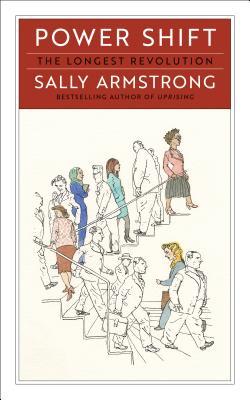This book, by award winning author, journalist and human rights activist Sally Armstrong, is based on her 2019 Massey Lecture, an annual event organized by the Canadian Broadcasting Corporation. It presents her view that the way women and girls are treated is crucial to how everyone in society not only survives, but thrives. She believes the power of the recent #MeToo movement has given momentum to the evolution of gender politics, harnessing the collective power of many to change the way gender differences have been viewed and discussed in the past and are now addressed in the present.
In the first of five chapters, she provides an overview of past history, describing how women and girls have been treated over time and across world continents. She considers the first wave from 1848 to 1920 when women struggled to get the vote, moves on to the second phase from 1963 to 1980 when the pill was introduced and women gained more control over reproduction and then the third wave, the years 1992 to 2010, a time during which Anita Hill raised awareness of sexual harassment by challenging Clarence Thomas’s behavior in court. In the fourth wave, which she considers to be from 2012 to the present time, the focus has been on the empowerment of marginalization groups and the power of the collective pushing things forward using social media.
Armstrong explains how past societal codes of conduct have always viewed women and girls as less valued than men and boys. Examining how women fared in the past, she describes how their oppression was codified in religion and laws, allowing misogynists to defend their behavior by insisting they were acting in the name of God, using both the Old and New Testament as well as the Quran and the Torah to support their claims.
She agrees some progress has been made in banning the horrific practices of female genital mutilation and the binding of Chinese women’s feet, but also describes how the practice of honor killing, a family alliance that allows a woman to be murdered to rid a family of perceived shame, is still practiced in some countries.
Much of what she presents is described through moving stories of individuals she has met and interviewed in Afghanistan, Bosnia, Somalia, Rwanda, Iraq, South Sudan, Jordan and Israel. The horrific atrocities these women and girls have endured make for difficult reading.
Armstrong articulates her strong belief that women and girls must be viewed as equal if society is ever to advance, but acknowledges we still have a long road to travel before gender equality is a reality. Although women have pushed for years to enjoy equal rights, she believes small victories are necessary before there is any major sustainable change. However many of those changes which signal at least some progress, still eludes half the world’s population. She also presents an important idea, that present day social movements, evolved from the decentralization of power previously held by long standing institutions , will accelerate the movement forward.
Armstrong has meticulously researched the material she uses and has organized and presented it in a way that holds the readers’ attention. As a journalist, she is well regarded for her writing and is careful and thoughtful about any conclusions she makes. Given the audience for the Massy lectures, largely more educated, left leaning individuals who listen to CBC radio, Armstrong stays away from a more radical approach to her material. Instead she guides her readers through the large amount of material she presents, telling personal stories of her interviews with women and girls as shares her ideas of what has happened in the past, is happening today and hopefully what can and should be achieved worldwide in the future.
It proved to be an interesting read.

